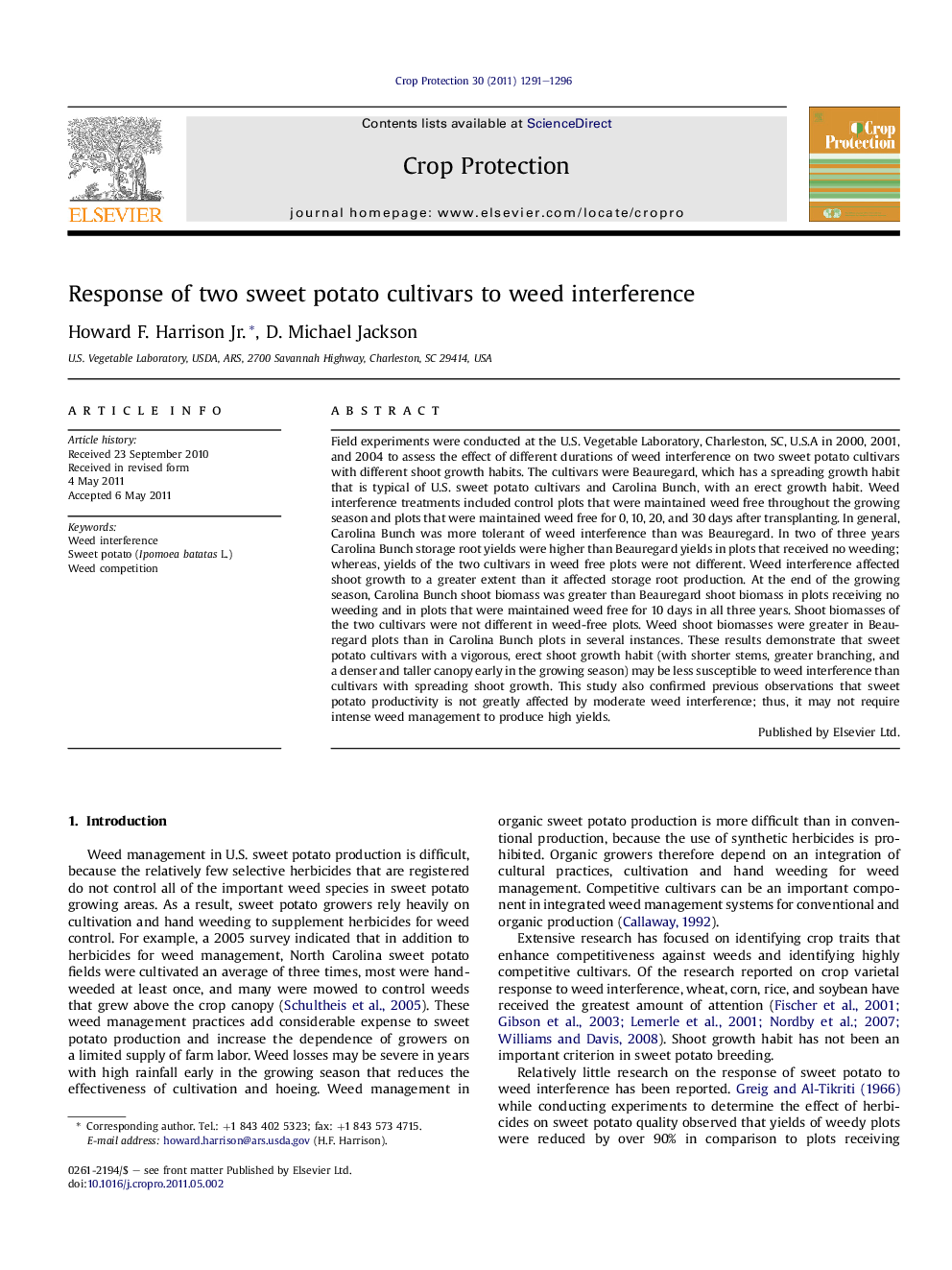| Article ID | Journal | Published Year | Pages | File Type |
|---|---|---|---|---|
| 4506567 | Crop Protection | 2011 | 6 Pages |
Field experiments were conducted at the U.S. Vegetable Laboratory, Charleston, SC, U.S.A in 2000, 2001, and 2004 to assess the effect of different durations of weed interference on two sweet potato cultivars with different shoot growth habits. The cultivars were Beauregard, which has a spreading growth habit that is typical of U.S. sweet potato cultivars and Carolina Bunch, with an erect growth habit. Weed interference treatments included control plots that were maintained weed free throughout the growing season and plots that were maintained weed free for 0, 10, 20, and 30 days after transplanting. In general, Carolina Bunch was more tolerant of weed interference than was Beauregard. In two of three years Carolina Bunch storage root yields were higher than Beauregard yields in plots that received no weeding; whereas, yields of the two cultivars in weed free plots were not different. Weed interference affected shoot growth to a greater extent than it affected storage root production. At the end of the growing season, Carolina Bunch shoot biomass was greater than Beauregard shoot biomass in plots receiving no weeding and in plots that were maintained weed free for 10 days in all three years. Shoot biomasses of the two cultivars were not different in weed-free plots. Weed shoot biomasses were greater in Beauregard plots than in Carolina Bunch plots in several instances. These results demonstrate that sweet potato cultivars with a vigorous, erect shoot growth habit (with shorter stems, greater branching, and a denser and taller canopy early in the growing season) may be less susceptible to weed interference than cultivars with spreading shoot growth. This study also confirmed previous observations that sweet potato productivity is not greatly affected by moderate weed interference; thus, it may not require intense weed management to produce high yields.
► Two sweetpotato cultivars with different growth habits varied in response to weed interference. ► The cultivar, Carolina Bunch with an erect growth habit with short vines was less affected by weed interference than the cultivar, Beauregard with a trailing growth habit with long vines. ► Yields of either variety were not affected in plots that were maintained weed free for 20 days or longer. ► These studies suggest that competitive cultivars like Carolina Bunch may be useful as a component in integrated weed management programs for sweetpotato.
